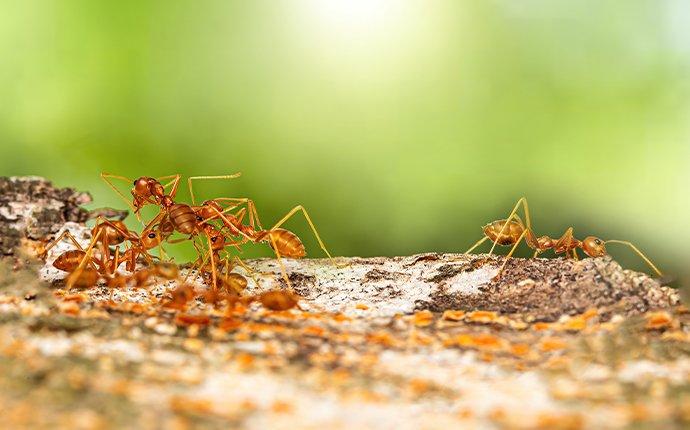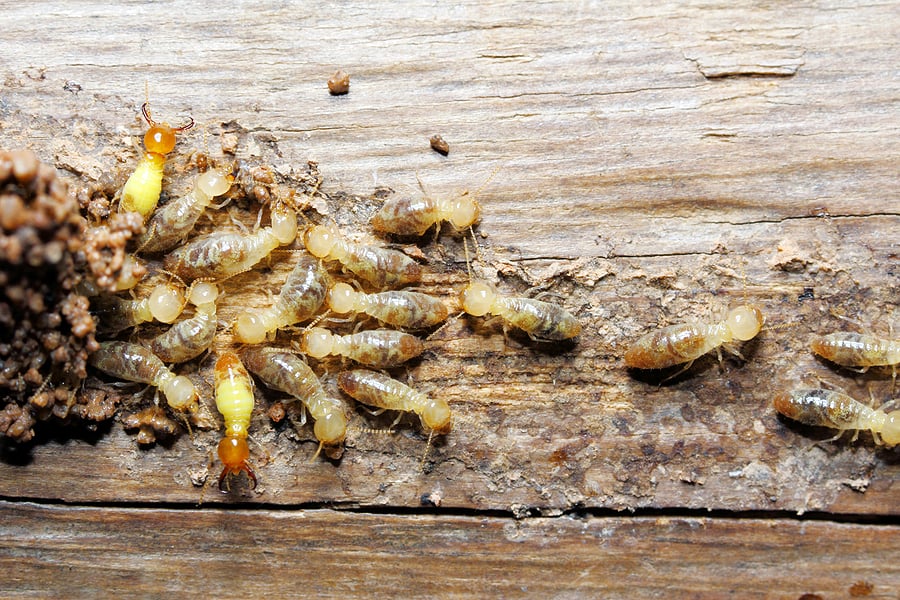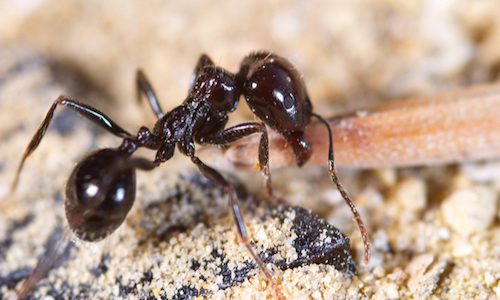Affordable Ant Control Solutions: Maintain Your Space Ant-Free
Affordable Ant Control Solutions: Maintain Your Space Ant-Free
Blog Article
Ecological Effect of Bug Control: Balancing Effectiveness With Sustainability
The ecological influence of insect control is an important issue that requires a delicate equilibrium in between accomplishing performance in managing pests and making sure sustainability of our environments. As we make every effort to secure our plants, homes, and wellness from the threats presented by parasites, the methods we use can inadvertently damage the environment. From using dangerous chemicals that seep right into our soil and water to the unintentional consequences on non-target types, the effects of traditional parasite control practices are significant. There are arising techniques that offer hope for a more lasting technique to pest monitoring. These remedies not just goal to attend to the instant pest issues but also think about the long-term health and wellness of our earth.
Damaging Chemicals in Parasite Control
The use of harmful chemicals in insect control postures substantial ecological and health and wellness risks that require mindful consideration and reduction methods. Herbicides, pesticides, and chemicals are frequently made use of to eliminate pests, but their prevalent application can cause unexpected consequences. These chemicals can pollute soil, water resources, and the air, affecting not just the targeted bugs yet additionally advantageous pests, wildlife, and humans.

To attend to these risks, integrated parasite monitoring (IPM) methods are being promoted as a much more sustainable choice. IPM includes a combination of techniques such as organic control, habitat manipulation, and the targeted usage of pesticides as a last hotel (ant control cherryville nc). By embracing a holistic technique to pest control, we can decrease the ecological and health influences related to dangerous chemicals while successfully managing pest populaces
Influence On Non-Target Variety
Thinking about the unintentional effects of bug control approaches, the influence on non-target species is an important aspect that needs thorough examination. While parasite control procedures aim to target certain pests, various other organisms in the ecological community may be unintentionally affected. Non-target varieties, including valuable bugs, birds, animals, and also plants, can experience straight or indirect injury from chemical applications or biological control methods.
Insecticides made to combat a particular insect parasite might harm pollinators like bees or all-natural predators such as ladybugs. Biological control representatives, if not species-specific, can position risks to unintentional targets, interrupting the eco-friendly equilibrium.
To reduce the impact on non-target types, incorporated parasite management (IPM) strategies that highlight an all natural approach to pest control are recommended. These techniques focus on making use of eco friendly practices, decreasing damage to useful microorganisms while properly taking care of pest populations. Carrying out comprehensive risk analyses and checking the outcomes of insect control initiatives are necessary action in protecting non-target species and advertising overall community wellness.
Soil and Water Contamination
Unexpected environmental consequences of parasite control techniques prolong past impacting non-target species, with substantial ramifications for soil and water contamination. Pesticides, herbicides, and chemical fertilizers made use of in insect control can leach into the dirt and infect groundwater, presenting a threat to both marine and earthbound ecological communities. Soil contamination can disrupt the equilibrium of bacteria necessary for nutrient cycling and plant development, leading to decreased dirt fertility and performance. These chemicals can continue in the environment for extensive durations, collecting in the soil and potentially going into the food chain.
Water contamination is another important problem associated with insect control practices. Overflow from farming fields treated with chemicals can bring these chemicals into neighboring water bodies, affecting water microorganisms and water top quality. Pollutants in water resources can have far-reaching effects, impacting not only aquatic life yet additionally human health via the intake of infected water or marine microorganisms. To minimize dirt and water contamination from parasite control tasks, incorporated parasite administration techniques that prioritize sustainability and lessen chemical inputs are crucial.
Air Pollution From Chemical Usage
Exposure to airborne chemicals during farming applications presents a significant worry for air contamination control actions. When chemicals are splashed onto crops, they can volatilize into the air and type unpredictable organic substances (VOCs) and other air-borne toxins. These chemicals can add to the formation of ground-level ozone, a major element of smoke that can have detrimental effects on human wellness, crop productivity, and general air high quality. Additionally, pesticide drift, where chemicals are lugged by the wind to unexpected areas, can cause the contamination of close-by ecological communities and water bodies.

Strategies for Lasting Insect Control
In the world of agricultural methods, implementing lasting parasite control strategies is vital for preserving ecological balance and protecting crop yields. Lasting parasite control emphasizes using ecologically pleasant methods to manage pest populations efficiently while decreasing damage to non-target microorganisms and ecological communities. Integrated Insect Administration (IPM) is an extensively taken on method that integrates organic, social, physical, and chemical control approaches to attain long-term insect administration services.
Plant turning and diversity are also reliable strategies to interrupt pest life cycles and develop less desirable conditions for insects to grow. Ultimately, by integrating these sustainable pest control strategies, farmers can attain an equilibrium between pest administration efficiency and environmental stewardship.
Verdict
In final thought, the ecological effect of bug control methods should be meticulously taken into consideration to stabilize performance with sustainability. Harmful chemicals used in parasite control can lead to dirt and water contamination, air pollution, and harm non-target types - ant control services. It is critical to carry out sustainable bug control approaches to lessen these negative results on the setting and advertise a much healthier ecological community for future generations
By adopting an alternative strategy to pest control, we can reduce the environmental and health effects connected with harmful chemicals while successfully handling pest populaces.

To reduce the air contamination created by pesticide usage, it is essential to adopt integrated insect management techniques that focus on the usage of non-chemical pest control techniques, such as crop rotation, natural predators, and resistant plant ranges. Lasting parasite control highlights the usage of ecologically pleasant approaches to handle parasite populaces properly while minimizing harm to non-target microorganisms and ecosystems. Integrated Bug Management (IPM) is an extensively taken on method that combines organic, social, physical, and chemical control methods to attain lasting pest management services.
Report this page